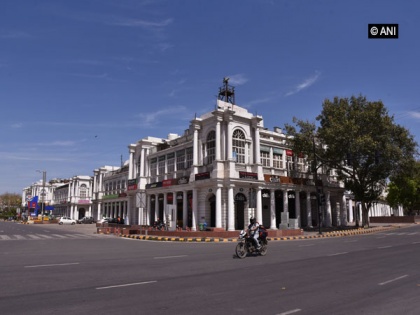Developing Asia to see flat growth due to COVID-19: ADB
By ANI | Published: June 18, 2020 11:05 AM2020-06-18T11:05:15+5:302020-06-18T11:20:02+5:30
Developing Asia will barely grow in 2020 as containment measures to address the coronavirus (COVID-19) pandemic hamper economic activity and weaken external demand, according to a new set of forecasts from the Asian Development Bank (ADB) released on Thursday.

Developing Asia to see flat growth due to COVID-19: ADB
Developing Asia will barely grow in 2020 as containment measures to address the coronavirus (COVID-19) pandemic hamper economic activity and weaken external demand, according to a new set of forecasts from the Asian Development Bank (ADB) released on Thursday.
In a regular supplement to its annual flagship economic publication, the Asian Development Outlook (ADO) 2020 released in April, ADB forecasts growth of 0.1 per cent for the region in 2020.
This is down from the 2.2 per cent forecast in April and will be the slowest growth for the region since 1961. Growth in 2021 is expected to rise to 6.2 per cent as forecast in April. Gross domestic product (GDP) levels in 2021 will remain below what had been envisioned and below pre-crisis trends.
Excluding the newly industrialised economies of Hong Kong, South Korea, Singapore and Taiwan, developing Asia is forecast to grow 0.4 per cent this year and 6.6 per cent in 2021.
"Economies in Asia and the Pacific will continue to feel the blow of COVID-19 pandemic this year even as lockdowns are slowly eased and select economic activities restart in a 'new normal' scenario," said ADB Chief Economist Yasuyuki Sawada.
"While we see a higher growth outlook for the region in 2021, this is mainly due to weak numbers this year, and this will not be a V-shaped recovery. Governments should undertake policy measures to reduce the negative impact of COVID-19 and ensure that no further waves of outbreaks occur."
Risks to the outlook remain on the downside. The COVID-19 pandemic may see multiple waves of outbreaks in the coming period and sovereign debt and financial crises cannot be ruled out. There is also the risk of renewed escalation in trade tensions between the United States and China.
Hit hard by coronavirus, South Asia is forecast to contract by 3 per cent in 2020 compared to 4.1 per cent growth predicted in April. Growth prospects for 2021 are revised down to 4.9 from 6 per cent.
India's economy is forecast to contract by 4 per cent in the fiscal year 2020 ending on March 31, 2021, before growing 5 per cent next year.
East Asia is forecast to grow 1.3 per cent in 2020 -- the only subregion to experience growth this year -- while growth in 2021 will recover to 6.8 per cent. Growth in China is forecast at 1.8 per cent this year and 7.4 per cent in 2021, compared to the April estimates of 2.3 per cent and 7.3 per cent respectively.
Economic activity in Southeast Asia is expected to contract by 2.7 per cent this year before growing by 5.2 per cent in 2021. Contractions are forecast in key economies as containment measures affect domestic consumption and investment, including Indonesia (minus 1 per cent), the Philippines (minus 3.8 per cent) and Thailand (minus 6.5 per cent).
Vietnam is forecast to grow at 4.1 per cent in 2020. While that is 0.7 percentage points lower than ADB's April estimates, it is the fastest growth expected in Southeast Asia.
Central Asia's economic activity is expected to contract by 0.5 per cent compared to the 2.8 per cent growth forecast in April due to trade disruptions and low oil prices. Growth is forecast to recover to 4.2 per cent in 2021.
Restricted trade flows and declining tourism numbers have dampened economic outlook for the Pacific subregion. The subregional economy is forecast to contract by 4.3 per cent in 2020 before rising to 1.6 per cent growth in 2021.
Inflation for developing Asia is forecast at 2.9 per cent in 2020, down from a forecast of 3.2 per cent in April, reflecting depressed demand and lower oil prices. In 2021, inflation is expected to ease to 2.4 per cent.
( With inputs from ANI )
Open in app